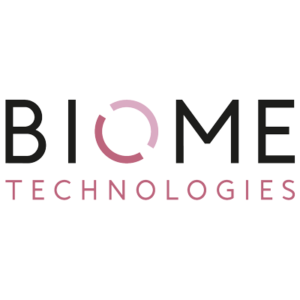High temperature stability is often a challenging property for bio-resins, which traditionally exhibit reduced mechanical strength at elevated temperatures. Additionally, they face scrutiny for being derived from food sources. The BiomeHT product line provides an alternative that combines exceptional heat resistance with strong environmental credentials. This range offers impressive temperature stability while remaining fully biodegradable and compostable.
Biome Bioplastics has been advancing this line of heat-resistant products, with the latest development being BiomeHTX. This particular variant is fibre-reinforced and designed to create rigid and durable injection-moulded parts. The BiomeHT series includes several products, such as BiomeHT90 and BiomeHTX (450), each with specific properties to meet diverse needs.
BiomeHT90 is particularly well-suited for applications requiring significant temperature resistance. With a softening point of 110°C, which is 40–50°C higher than that of similar bioplastics, BiomeHT90 is ideal for use in food service and electronics. This grade is available for both injection moulding and extrusion applications. BiomeHT90 for injection moulding can be used to produce heat-resistant components, whereas the extrusion version is tailored for high temperature-resistant sheet extrusion and thermoforming. The extruded sheets are also stiffer compared to oil-based polystyrene, enabling converters to reduce material usage without compromising performance.
BiomeHTX (450), another member of the BiomeHT range, is a newly developed biodegradable and compostable polymer grade that features a fibre-reinforced composition made from a blend of renewable plant feedstocks. It produces robust, rigid parts that are suitable for industrial composting, with the potential for certification under ASTM D6400 and EN13432 standards. This polymer offers a Heat Deflection Temperature (HDT) of 85°C without requiring in-mould or post-mould treatments, making it versatile and easy to process.
The heat resistance of the BiomeHT polymers is noteworthy. The softening point, measured by the VICAT (A) test (ISO 306), shows that BiomeHT90 reaches 110°C while BiomeHTX (450) achieves 130°C. Both grades are non-food derived and free from genetically modified organisms (GMOs). Additionally, these materials exhibit a softening point well above 100°C, significantly higher than other typical bio-materials.
BiomeHT90 is suitable for both injection moulding and sheet extrusion/thermoforming. It has been approved for food contact by both EU and FDA regulations, making it a suitable option for products such as hot beverage containers, cosmetics, electrical components, and other heat-sensitive items. Processing is straightforward, with BiomeHT performing well on standard injection moulding machines, including both hot and cold runner systems. The material’s characteristics are similar to those of ABS, with comparable cycle times and a lower shrinkage rate (between 0-0.5%). Recycling is also facilitated, as waste can be reprocessed with virgin material.
Biome Bioplastics aims to maximise the bio-based content in its products, continually working to enhance sustainability. The BiomeHT range currently has a bio-based carbon content greater than 50%. In addition, these materials are fully biodegradable and compostable in line with EN 13432 and ASTM D6400 standards.
The BiomeHT series combines exceptional heat resistance, environmental benefits, and versatility in processing, offering an effective solution for a variety of heat-sensitive applications that require sustainable materials.
Biome Technologies plc (LON:BIOM) is a growth oriented, commercially driven technology group. The Group’s primary activity is the development of its fast growing business in bioplastics. The Group comprises two divisions: Biome Bioplastics and Stanelco RF Technologies.


